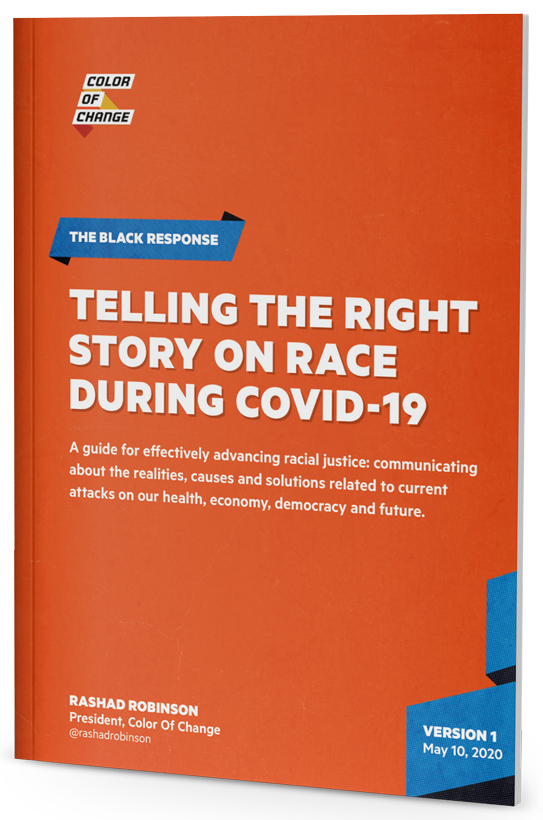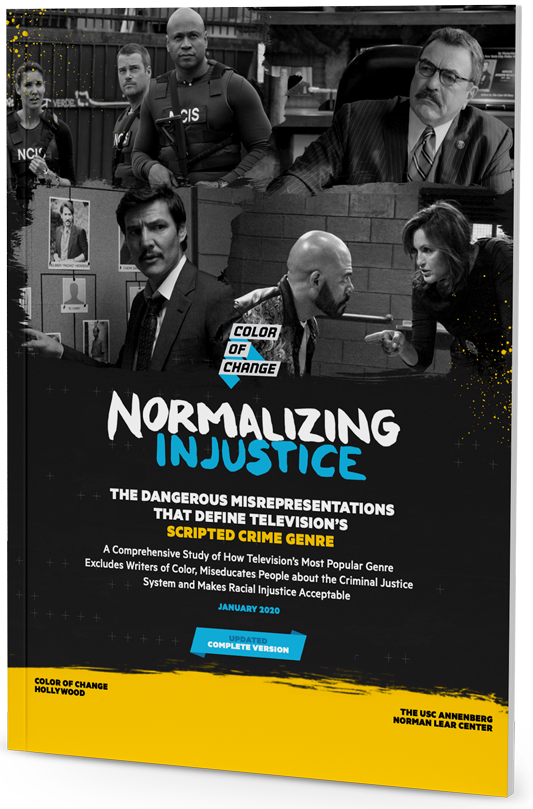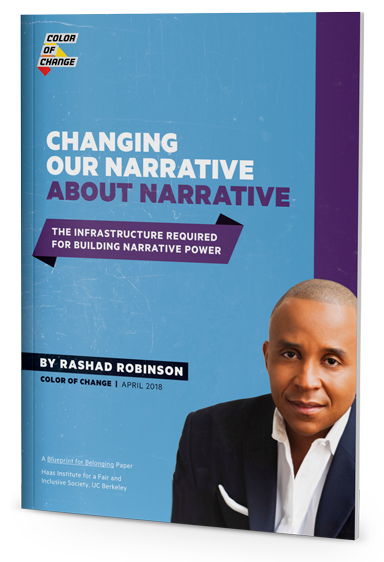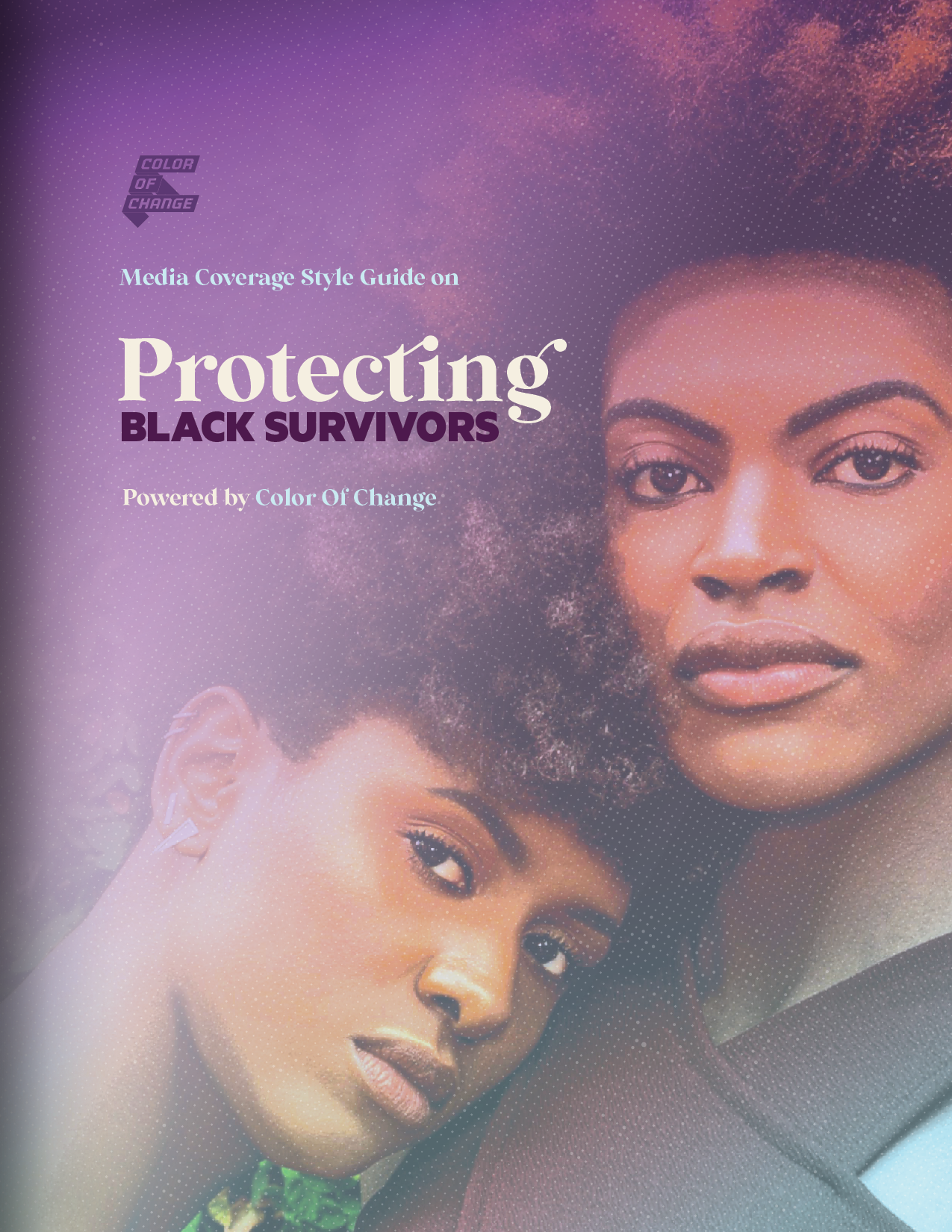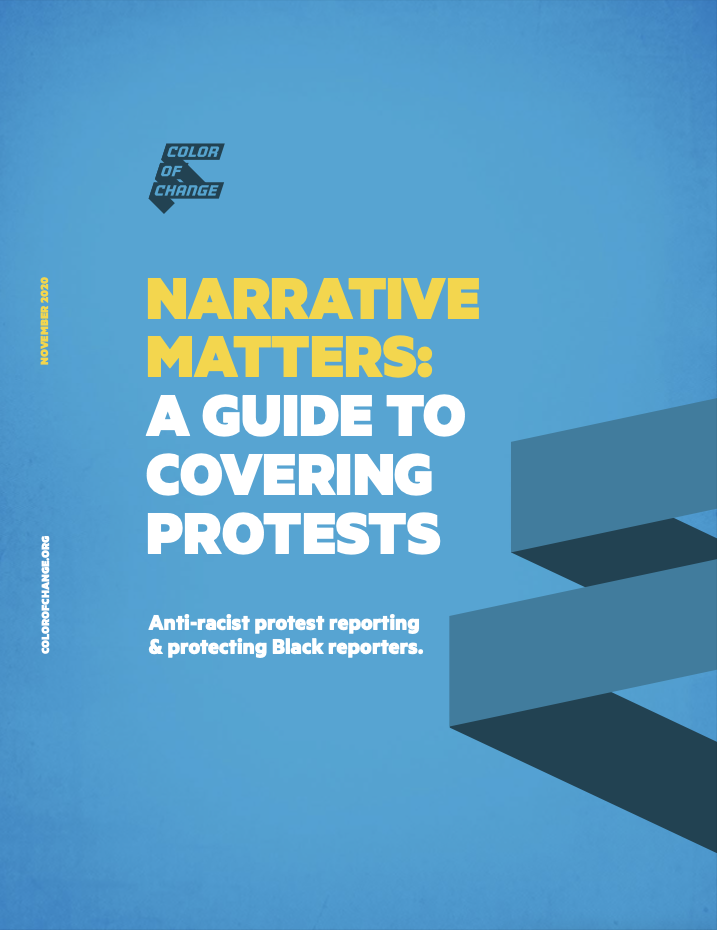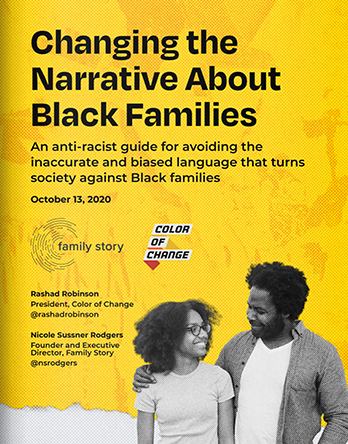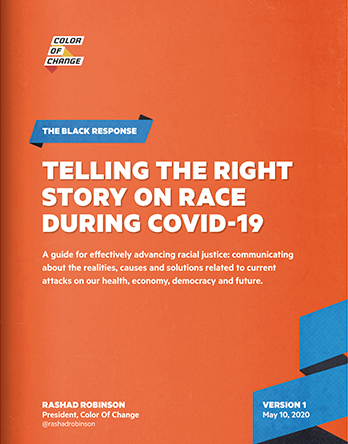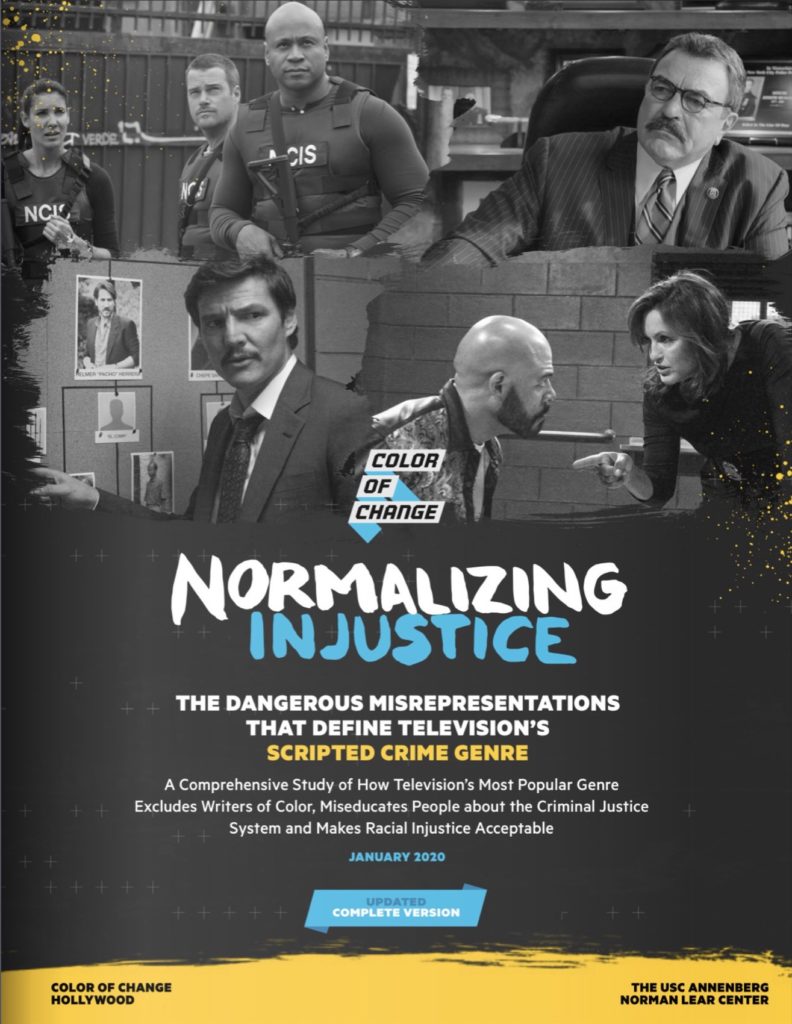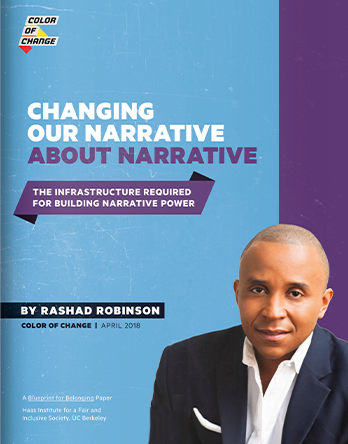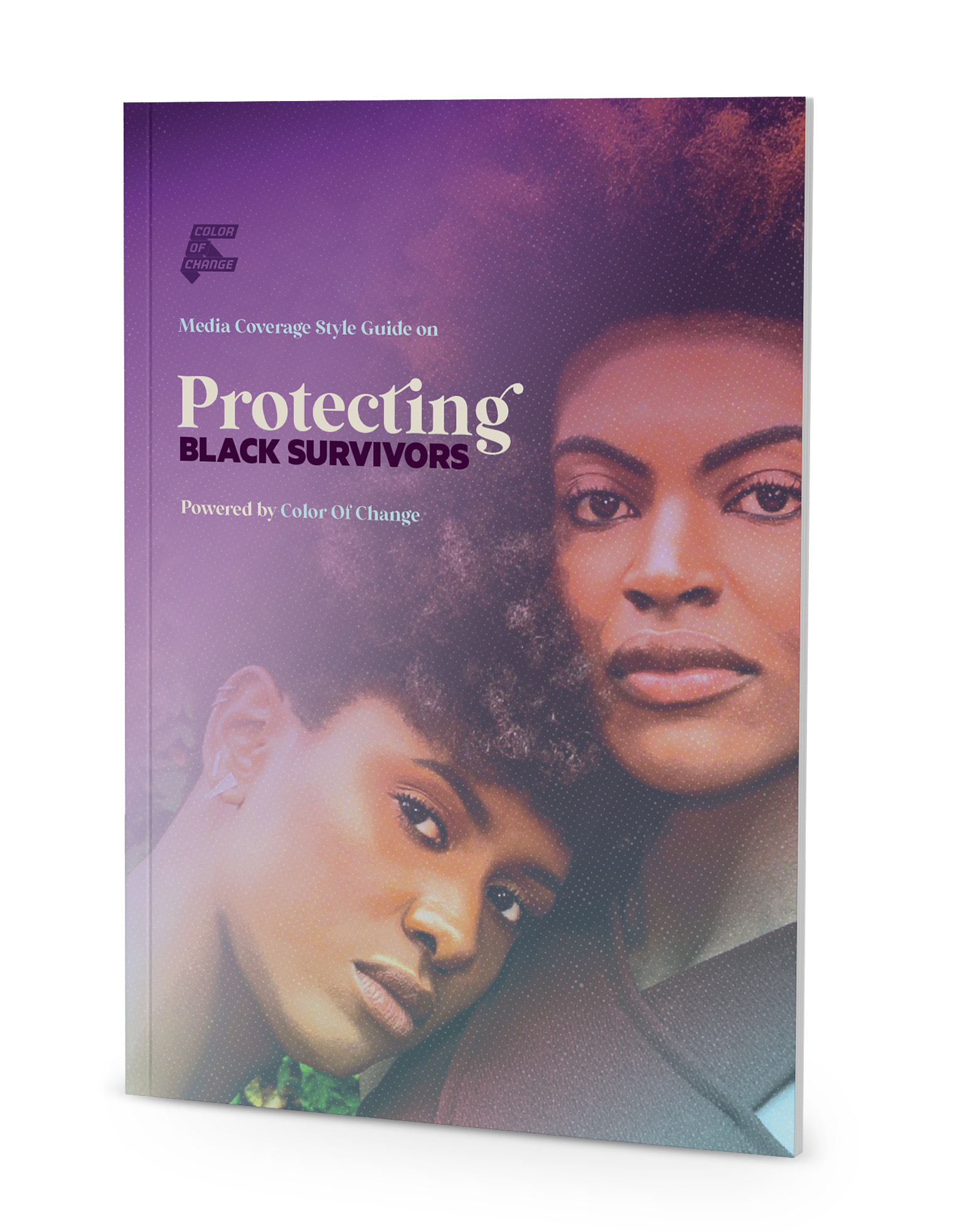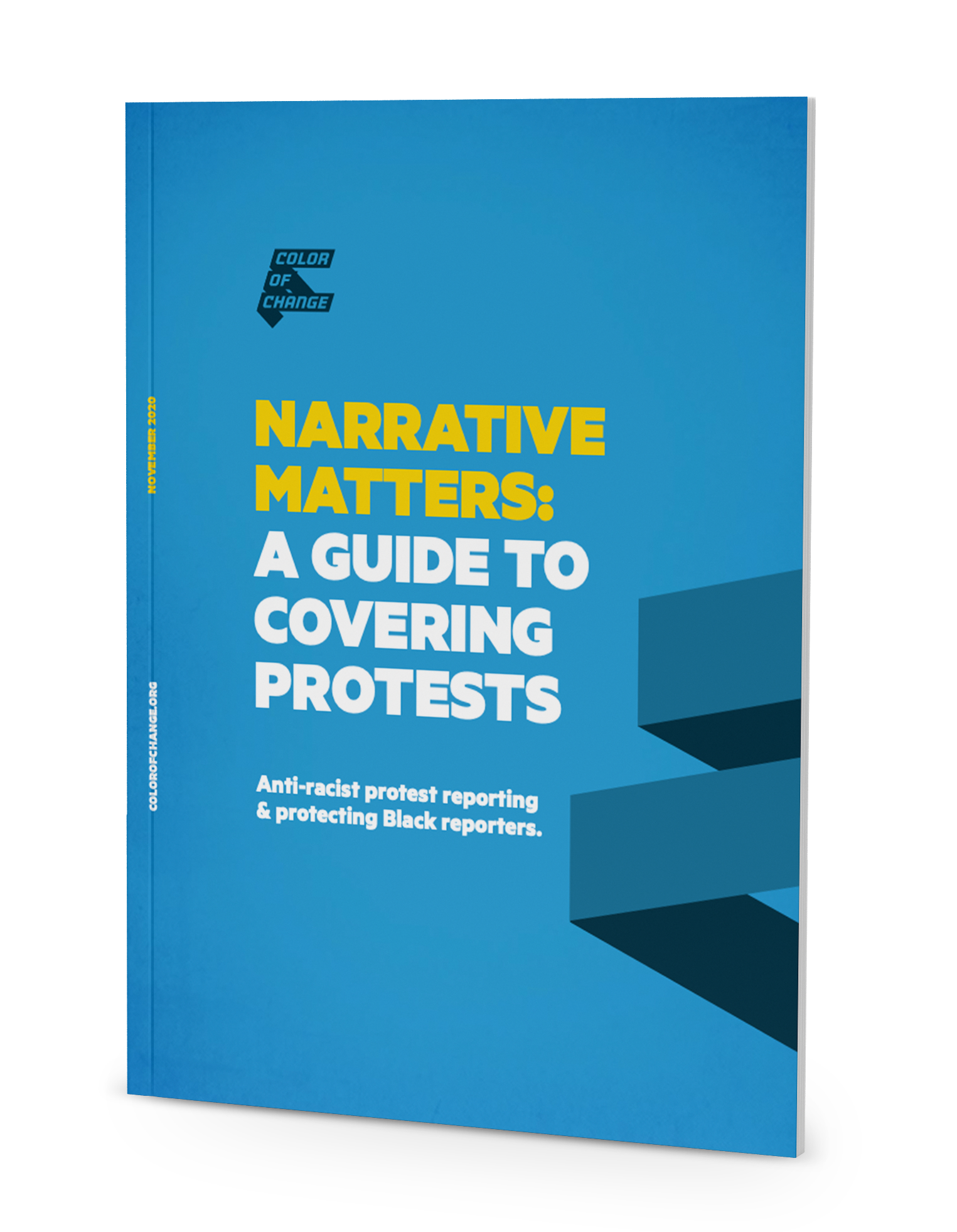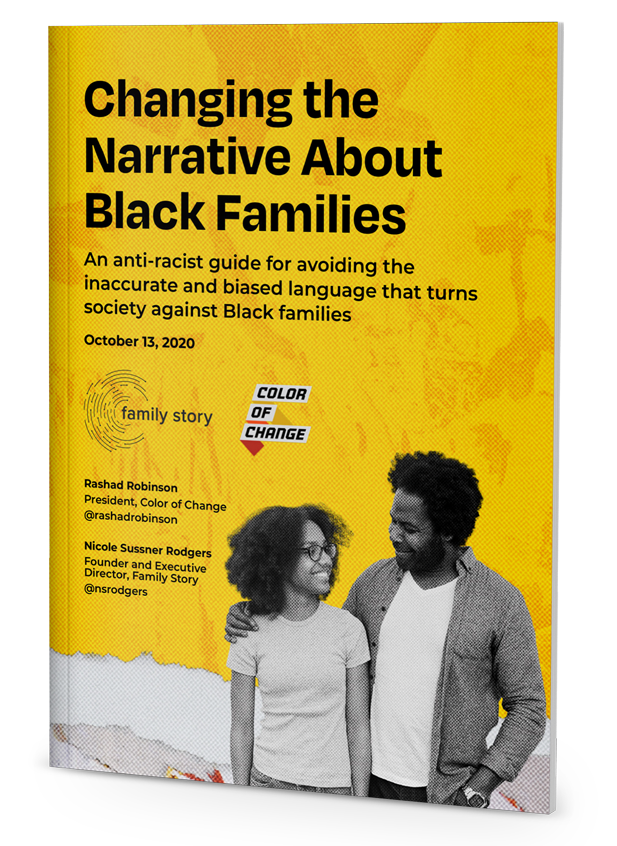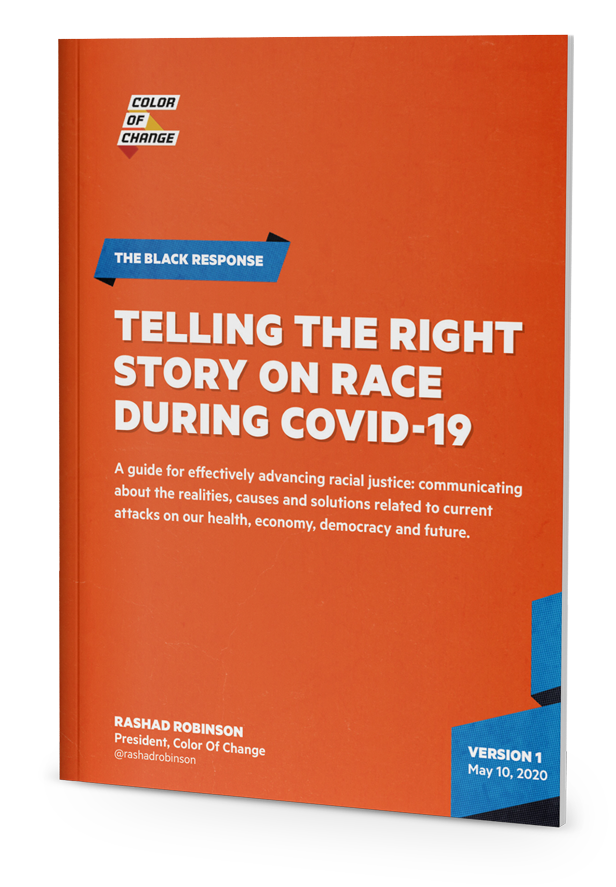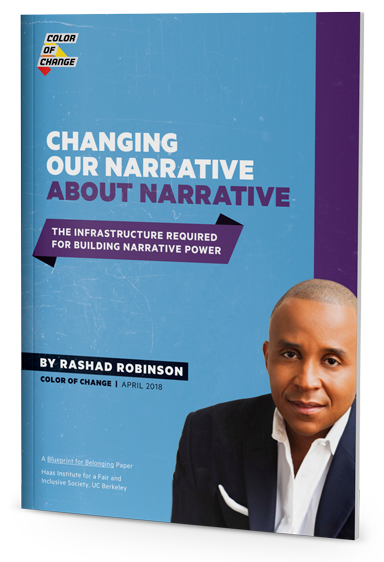PROTECTING BLACK SURVIVORS
Mainstream media has played a foreleading role in shaping harmful narratives around sexual violence. Some media publications opt for clickbait headlines that sensationalize Black trauma, while others adopt victim-blaming language that reinforces race-based sexual stereotypes (e.g. “Jezebel”). This guide offers examples of survivor-affirming language, gender and racial justice framing, and trauma-informed interview techniques to adopt when reporting on this issue.
Narrative Matters: A Guide to Covering Protests
Anti-racist Protest Reporting & Protecting Black Reporters
This year marked a new era of mass protest. The Black Lives Matter protests of the 2010s culminated with the largest uprising for any cause in American history: more than 20 million people took to the streets to demand accountability for police violence, justice for Black people killed by police, an overhaul of our criminal justice system, and a deep reckoning with racial injustice across every part of society.
CHANGING THE NARRATIVE ABOUT BLACK FAMILIES
Authors: Color Of Change and Family Story
This guide identifies inaccurate and biased terms and narratives that are used to undermine the success and wellbeing of Black families in society. These are terms and narratives that result in real harm: society unfairly judging and punishing Black families according to a set of rules that white people in similar situations are not held accountable to; and society unfairly denying the recognition, care, compassion and support that white families in similar situations benefit from receiving.
TELLING THE RIGHT STORY ON RACE DURING COVID-19
Rashad Robinson developed a narrative guide for effectively advancing racial justice when communicating about COVID-19. The guide offers examples for what to say (and not to say) when talking about realities, causes and solutions related to racial injustice.
You can read and download the guide here, and also watch a presentation (with Q&A) that Rashad gave to movement allies and partners.
“
“Beyond policy fights, the real contest is over culture: we must establish new ways of thinking about people of color and race in general. But we cannot establish new norms, or hold people accountable to them, if we are defaulting to old ways of thinking and communicating ourselves.”
„
“
“Beyond policy fights, the real contest is over culture: we must establish new ways of thinking about people of color and race in general. But we cannot establish new norms, or hold people accountable to them, if we are defaulting to old ways of thinking and communicating ourselves.”
„
NORMALIZING
INJUSTICE
THE DANGEROUS MISREPRESENTATIONS THAT DEFINE TELEVISION’S SCRIPTED CRIME GENRE
A Comprehensive Study of How Television’s Most Popular Genre Excludes Writers of Color, Miseducates People about the Criminal Justice System and Makes Racial Injustice Acceptable
CHANGING OUR NARRATIVE ABOUT NARRATIVE
A high-level outline of the strategic thinking required to create the right story about narrative change, and the infrastructure required to build true narrative power.
© 2020 Color of Change. All Rights Reserved

